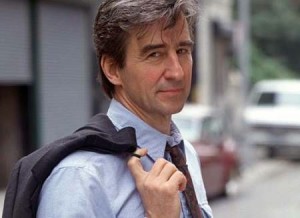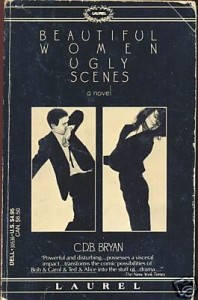The literary world lost a true legend this week with the death of critically acclaimed author and journalist, Courtlandt Dixon Barnes Bryan, the author of Friendly Fire, one of the most seminal books about the Vietnam War.
Better known as C.D.B Bryan, the author died at his home in Connecticut on the east coast of the United States on Tuesday with his adored wife, Mairi Bryan, by his side.
Bryan, who has two children from his first marriage and one from his second, had been battling cancer. He was 73.
His loss is enormous both professionally and personally.
Courtlandt was a mentor to many younger authors – including myself. He generously offered incredible support, encouragement and wisdom particularly to first-time writers.
When I began work on my first book, Beyond Bad, The Life and Crimes of Katherine Knight, I visited Bryan at his home in Guilford, CT, and asked the obvious: how do you do it?
I’ll never forget what he said, in his fabulous east-coast accent that would have been at home in Fitzgerald’s Gatsby. “Simple, shoulders forward, eyes down, type. Oh, and if you get stuck, a martini at midday helps.”
Months later we corresponded about the art of writing; about structure, tone, intent and narrative.
“The book you write is never the book your first draft turns out to be,” he wrote to me. “Just get the words down and worry about polishing later. The art is in the artlessness, in making it look easy and inevitable and, as Salinger said, ‘You just sit down and write the book you would most like to read yourself. Dare to do it. Trust your heart,’ etc.”
He spoke from the experience of having written at least 10 books and scores of magazine articles.
Despite his impressive body of work, it is Friendly Fire for which he is best known. Compelling and insightful, it has been repeatedly cited in professional military studies.
Bryan, who had served in the US Army in the peacetime occupation of Korea from 1958-1960, and again in the Berlin Crisis of 1961, focused on the death of Corporal Michael Mullen in Vietnam in 1970 and the subsequent radicalisation of his all-American farmer parents, Gene and Peg, who became vociferous anti-war protestors in their home state of Iowa.
Corporal Mullen was a draftee and killed by American artillery shelling, aka friendly fire, which is anything but.
The book is an aching report about the loss of a child that could have been avoided and the impact of his death on his parents, both of whom lose their faith in their country and it’s leaders and don’t believe their son’s death was accidental.
Friendly Fire began as a feature article for The New Yorker magazine, then under the editorship of legendary William Shawn, but by the time Bryan had finished interviewing the Mullen family and many of Michael Mullen’s fellow soldiers – including the yet-to-be famous General (Stormin’) Norman Schwarzkopf, he decided to extend the single article into a three-part series and finally a book.
The best-selling book was critically acclaimed and turned into an award-winning television film starring Carol Burnett and Ned Beatty as Mullens’ parents, and Sam Waterston (from Law and Order fame) as Bryan. Not for nothing did it win six Emmy Awards.

Actor Sam Waterston from Law and Order fame, who played C.D.B. Bryan in the telemovie based on his book, Friendly Fire
Bryan, a Yale University graduate and the stepson of writer John O’Hara, was also an accomplished novelist and his first fictional work, P.S. Wilkinson, won the prestigious Harper Prize in 1965. A later novel, Beautiful Women; Ugly Scenes is one of the most astute – and painful – books about a marriage that is failing only to end in a bitter divorce.
A skilled writer, he could turn his hand to any subject – fictional and non-fiction. He wrote Close Encounters of the Fourth Kind: Alien Abduction, UFOs and the Conference at M.I.T; The National Air and Space Museum and The National Geographic Society: 100 Years of Adventure and Discovery. As well, he wrote for various magazines.
And there was so much more to Bryan beyond the pages.
A bon vivant of the highest order, he had wit, charm and effortless style. He was a native storyteller and brilliant raconteur who used satire and wit in equal measure and like his wife, Mairi, could be counted on to be an engaging dinner companion.
I last saw Courtlandt on New Year’s day two years ago after the Bryans threw another of their renowned parties to welcome the arrival of 2007. He smoked, drank and cursed in equal abandon and, despite not being in great health, was in great spirits.
I’m told he was drinking his beloved martini shortly before he died.
He will be sorely missed, and always remembered.
Vale, Courtlandt Dixon Barnes Bryan.
My sincere condolences to Mairi and family.




